
A dramatic political maneuver unfolded on Sunday, August 3, 2025, as Texas House Democrats departed the state in a desperate attempt to thwart an aggressively partisan redrawing of the state’s congressional map. This extraordinary move, orchestrated by Republicans with the explicit support of President Donald Trump, is set to have profound repercussions, not only within the Lone Star State but also across the national political landscape.
The exodus of dozens of Democratic lawmakers represents a last-ditch effort to deny Republicans the necessary quorum to advance a proposal that could eliminate five Democratic US House seats. This escalating political battle ignites further tensions in a state already accustomed to intense partisan struggles, with significant implications for Washington, where House Republicans currently hold a razor-thin majority entering a challenging midterm election cycle.
In a swift and hostile response, Republican Governor Greg Abbott threatened late Sunday to remove lawmakers who fail to appear when the state House convenes on Monday afternoon. Governor Abbott equated the absence to an “abandonment or forfeiture of an elected state office,” signaling a firm stance from the state’s executive branch.
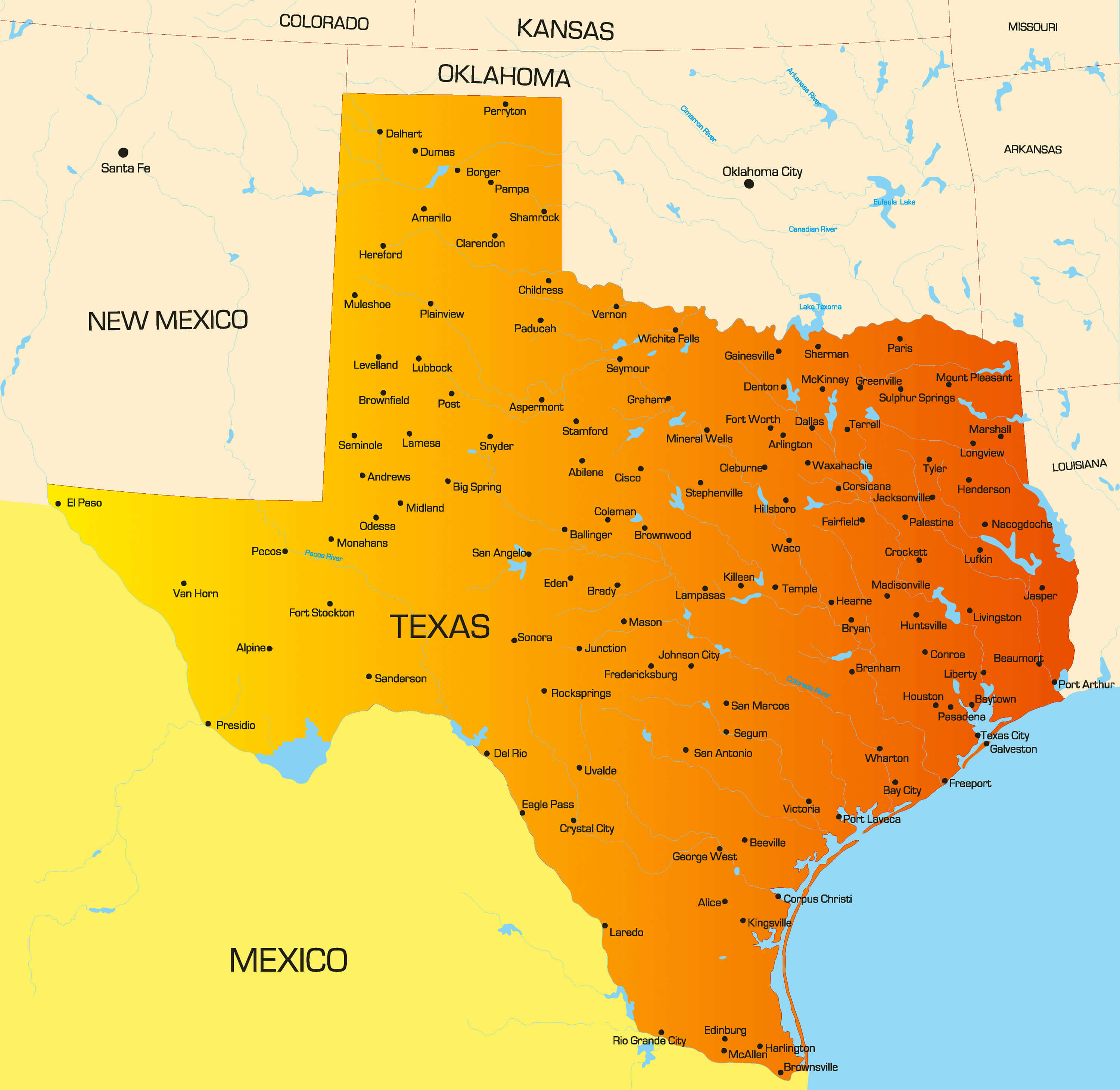
This latest escalation in Texas offers a preview of potentially more bitter confrontations on the horizon, as Republican-controlled states face increasing pressure from President Trump to redraw electoral maps to their advantage wherever possible. Democrats, in turn, have vowed to implement retaliatory measures in states where they control district boundaries, setting the stage for a nationwide redistricting battle.
States typically undertake the redrawing of congressional district boundaries once every ten years, following the release of updated population data from the United States census. A mid-decade revision of the map, such as the one proposed by Texas Republicans, is considered an extraordinary measure, one that Democrats unequivocally contend is a nakedly partisan effort designed to bolster Republican prospects of retaining control of the House.
Texas House Democratic Caucus Chair Gene Wu articulated the Democrats’ resolve shortly after landing in Chicago, stating, “We will not be complicit in the destruction of our own communities.” This sentiment underscores the profound stakes perceived by the minority party in the face of the proposed changes.
Read more about: Beyond the Coasts: Why Four Dynamic Sunbelt Cities Are Redefining America’s Economic Future

Dozens of Democrats joined Representative Wu on Sunday night in Chicago, where they were greeted by Illinois Governor J.B. Pritzker, who pledged support for their efforts. Other Democratic lawmakers from Texas traveled to Boston and Albany, New York, where some held an event Monday with Governor Kathy Hochul, further nationalizing the protest.
While a handful of lawmakers with family and medical issues remained in Texas, they committed to not appearing in Austin on Monday, as confirmed by Representative Wu. However, Wu declined to provide specific details on the exact number of lawmakers in each location or their future travel plans.
The Texas Constitution mandates that two-thirds of the state House members must be present to conduct legislative business. With 62 Democrats in the House, the minority party possesses the numerical strength to block action, provided that at least 51 members remain out of state, effectively denying the necessary quorum.
Read more about: ‘GO TO HELL’: Trump’s Social Media Outburst Dismantles High-Stakes Senate Deal, Signaling Deepening Partisan Rift

In a defiant statement released from Chicago, the Texas House Democratic Caucus responded directly to Governor Abbott’s threat of removal from office with the succinct and provocative phrase: “Come and take it.” This bold retort highlights the determination of the Democratic caucus.
Democratic State Representative Chris Turner, whose district encompasses Arlington, asserted the constitutional basis for their actions, stating, “It is the right of legislators to deny quorum.” He further emphasized the separation of powers in the country, adding, “As Governor Abbott should know, we also have separation of powers in this country. The executive doesn’t get to remove lawmakers just because he doesn’t like how we choose to represent those who elected us.”
The long-term effectiveness of this gambit in successfully blocking Republicans from eventually passing their proposed map remains uncertain. Lawmakers are currently convened under a special session, which is constitutionally limited to a duration of 30 days and is scheduled to conclude on August 19.
Read more about: Congressional Family Businesses Received Millions in Pandemic Aid, Raising Questions
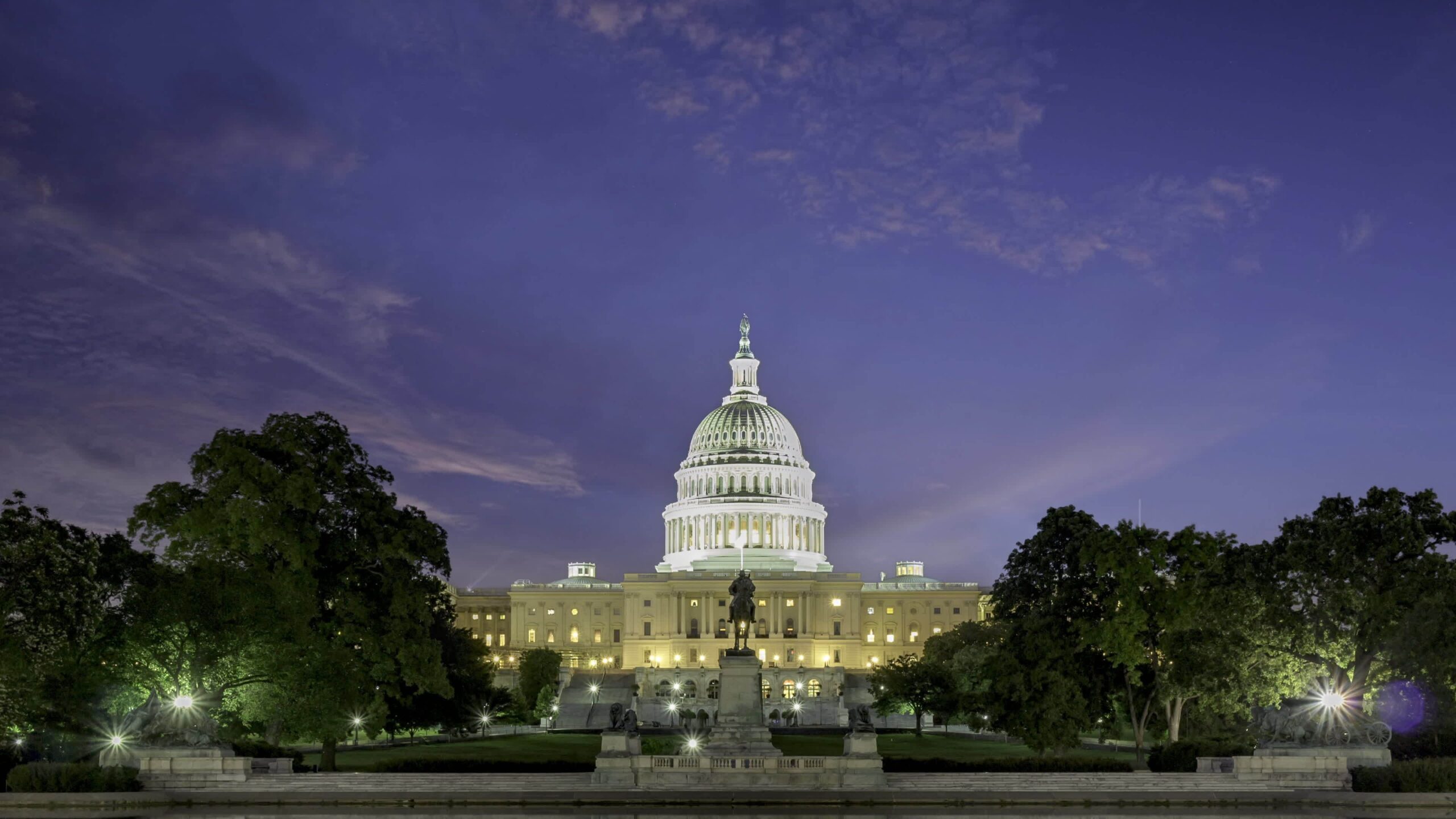
However, there appears to be little to prevent Governor Abbott from reconvening the state Capitol for additional special sessions as many times as he deems necessary to achieve his objectives. The durability of Democratic unity also presents a challenge.
A similar tactic employed by Texas Democrats in 2021 ultimately faltered after 38 days, when a small number of members secretly returned to Texas. This breach allowed Republicans to proceed with the passage of a bill imposing new voting restrictions, serving as a cautionary precedent for the current standoff.
Subsequent to that unsuccessful effort, new rules were implemented in the Texas House, imposing a daily fine of $500 for any member absent, specifically including absences undertaken “for the purpose of impeding the action of the House.” Representative Wu, however, did not specify the duration Democrats were prepared to remain outside the state, stating only their commitment to do “whatever it takes,” acknowledging, “What that looks like we don’t know.”
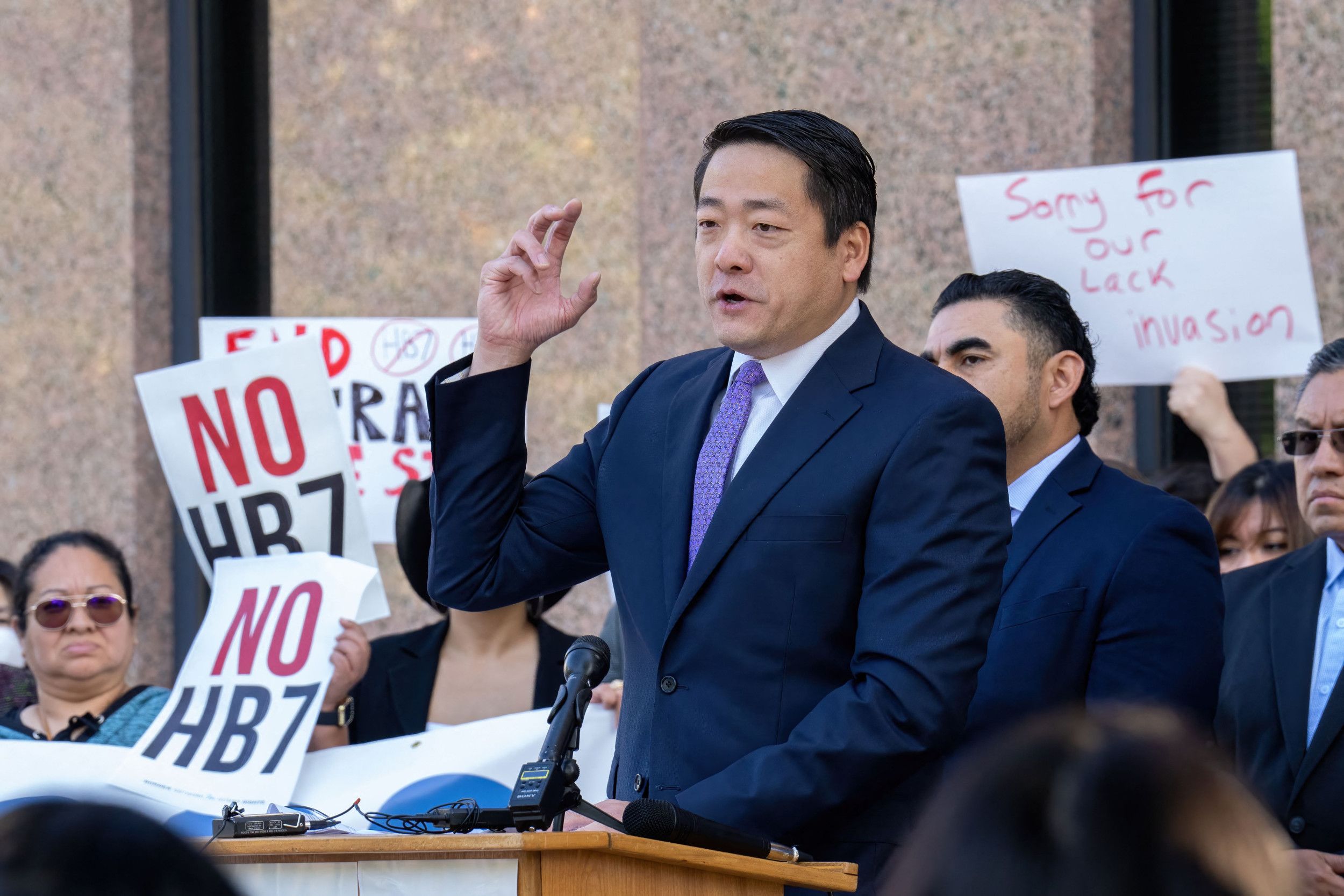
Texas Democrats are already facing significant repercussions from their home state. In his statement warning Democrats of potential House membership loss, Governor Abbott also accused them of engaging in fundraising activities to cover their prospective fines, suggesting such actions might constitute a felony.
Furthermore, Ken Paxton, Texas’ Attorney General and a candidate for US Senate, publicly declared on Sunday evening that “Democrats in the Texas House who try and run away like cowards should be found, arrested, and brought back to the Capitol immediately.” In a post on X, he continued, “We should use every tool at our disposal to hunt down those who think they are above the law,” though he did not elaborate on the specific tools he envisioned.
Republicans in Texas argue that the proposed redistricting is a necessary measure, citing concerns that the existing maps are unconstitutional and characterized by racial gerrymandering. Conversely, Democrats assert that the redrawn maps would suppress the votes of communities of color, thereby undermining democratic participation.
House Minority Leader Hakeem Jeffries, a Democrat from New York, has been advocating for retaliatory measures for months, reiterating these plans on Monday. “Democrats are going to respond from coast to coast and at all points in between to this effort to steal the midterm elections,” Jeffries told CNN.
Read more about: ‘GO TO HELL’: Trump’s Social Media Outburst Dismantles High-Stakes Senate Deal, Signaling Deepening Partisan Rift

He further added, “Perhaps Donald Trump and Mike Johnson and Republicans in Washington and Texas thought that Democrats would not respond. We’re going to respond forcefully, aggressively and relentlessly.” This indicates a coordinated national Democratic strategy.
National Democratic Redistricting Committee Chairman Eric Holder, a long-standing critic of partisan gerrymandering, has suggested that it may be time for Democrats to alter their traditional approach. “We have to understand that the nature of the threat that has been put upon the country through what they’re trying to do in Texas has really increased the danger to our democracy,” he stated on ABC’s “This Week” on Sunday.
Holder concluded, “And as a result of that, we’ve got to do things that perhaps in the past, I would not have supported,” suggesting a shift towards more aggressive counter-tactics. This political climate sets the stage for a tumultuous year leading up to the midterm elections, with congressional maps in a state of flux and the likelihood of numerous lawsuits.
Read more about: Beyond the Oval Office: Unpacking the Essential Rules and Expectations for Former US Presidents
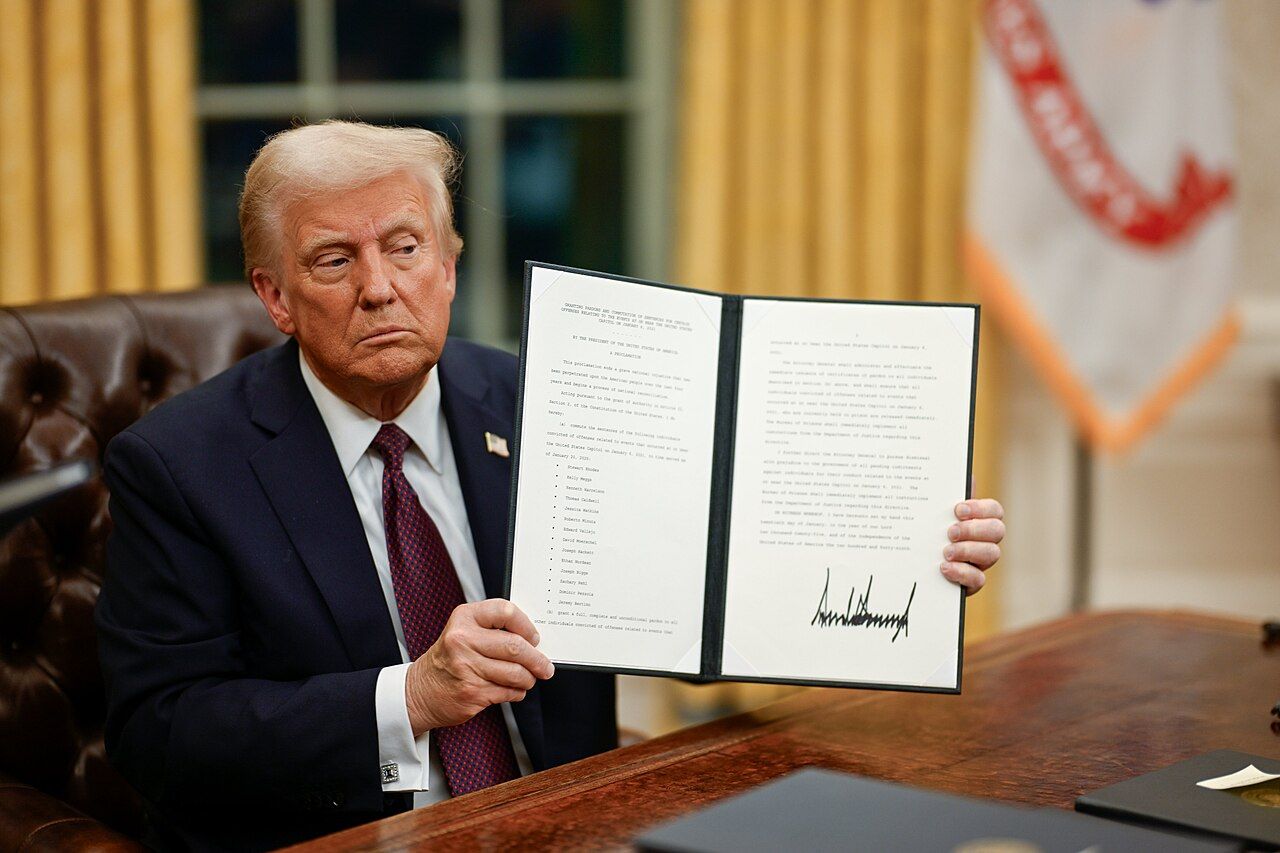
President Trump and national Republicans have conveyed their clear intent to undertake exceptional measures to retain control of Congress for the final two years of his presidency. Simultaneously, Democrats have pledged to their supporters that they will vigorously contest these efforts.
Republicans counter that “blue states” have already manipulated congressional maps to favor Democrats. They frequently cite examples such as Illinois, where Democrats hold a substantial majority of legislative seats, 14 to Republicans’ three.
Illinois Governor Pritzker, whose planning with Texas Democrats for this maneuver reportedly commenced in June, rejected this argument. He maintained that Illinois’ map passed constitutional muster and was approved on a traditional timetable, distinguishing it from the current Texas situation.
Read more about: Donald J. Trump: A Comprehensive Examination of His Business, Media, and Political Trajectory

Pritzker urged Democrats to actively resist if Texas Republicans proceed with what he characterized as their mid-decade “power grab.” He forcefully stated, “All bets are off when the cult leader and would-be dictator of the United States tells Texas to midstream change the game when they know that they’re going to lose in 2026.” Pritzker concluded, “All bets are off. Everything’s got to be on the table.”
The move to leave the state and deny a quorum garnered strong approbation from Texas Democrats in Congress, including those whose districts are at risk of being carved up or who face the prospect of being thrust into primaries against fellow members. Representative Jasmine Crockett, a Democrat from Texas, expressed her concern on MSNBC, stating, “This isn’t just about the five seats in Texas. This is about a power grab.”
She continued, “It is about basically setting the tone for what Donald Trump will try to do throughout this country, so that he can suppress the voices of Black and brown folk just so that he can stay in power.” This highlights the perception of the redistricting effort as a broader assault on voting rights.
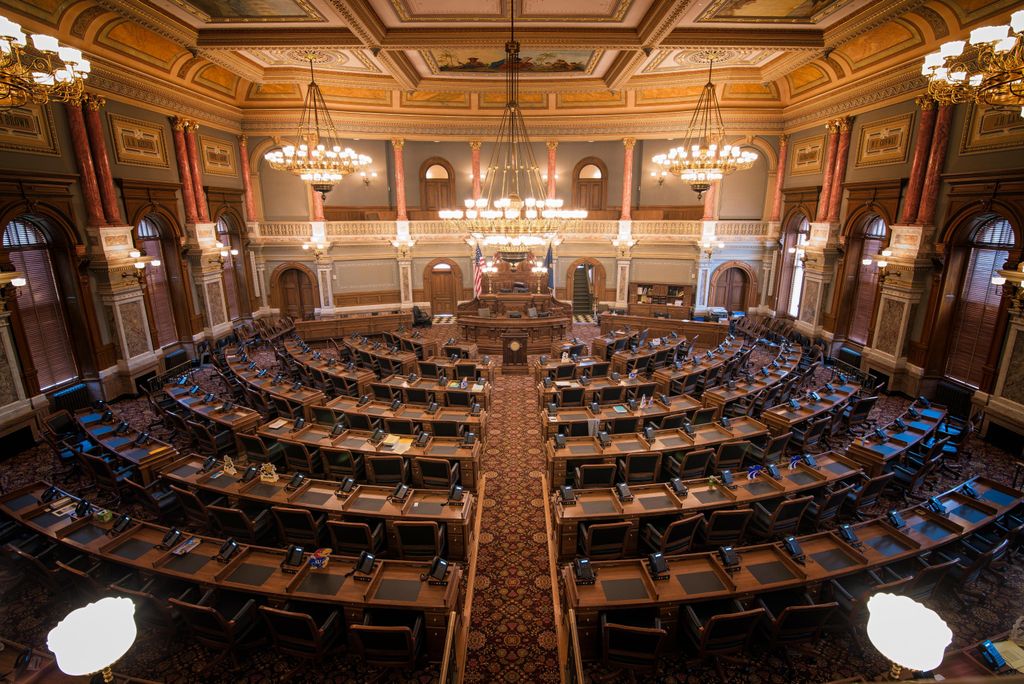
Representative Lloyd Doggett, a Texas Democrat who potentially faces being drawn into the same district as fellow Democratic Representative Greg Casar under the proposed Republican map, advocated for “defiance” of the Texas Democratic state legislators’ actions on X. He posted, “Trump is trying to steal next year’s Congressional election by rigging it this year.”
Doggett added, “His extraordinary scheme to undermine our democracy demands an extraordinary response, like that of our Texas state legislators have underway.” This underscores the gravity with which federal Democrats view the situation.
On the Republican side, State Attorney General Ken Paxton reiterated his stance on X, asserting, “Democrats in the Texas House who try and run away like cowards should be found, arrested, and brought back to the Capitol immediately. We should use every tool at our disposal to hunt down those who think they are above the law.” This indicates a strong desire to compel the return of the absent legislators.

Governor Greg Abbott, a Republican, confirmed in a statement Sunday that he would interpret the absences of Texas Democrats as “abandonment or forfeiture of an elected state office.” He also declared his intention to seek their removal if they did not report to the state Capitol on Monday afternoon.
Abbott further elaborated, “In addition to abandoning their offices, these legislators may also have committed felonies. Many absentee Democrats are soliciting funds to evade the fines they will incur under House rules,” adding that he would seek to extradite the Democrats, raising the stakes considerably.
Senator John Cornyn, a Republican from Texas, expressed his full support for the governor’s actions. Cornyn posted on X that “51 Texas House Democrats are engaging in a selfish dereliction of duty preventing state business. I support any and all measures taken by Governor Abbott and state leaders to end this charade,” aligning with the state GOP leadership.
Read more about: Laura Ingraham’s Enduring Influence: A Nexus of Power, Personality, and a Name Steeped in History

Illinois Governor J.B. Pritzker, a Democrat, met with the Texas legislators who arrived in Illinois on Sunday. He publicly pledged his support for their effort to break quorum and prevent the new maps from being implemented. Pritzker stated, “They’re here in Illinois. We’re going to do everything we can to protect every single one of them.” He added, “It’s the leaders of Texas who are attempting not to follow the law. They’re the ones that need to be held accountable.”
The potential for the Texas congressional map redrawing to trigger a cascading effect is significant, with Illinois and other states now considering similar actions. President Donald Trump has overtly endorsed the creation of more Republican-favored seats in Texas.
New York Governor Kathy Hochul confirmed she would begin exploring options to redraw congressional maps in the Empire State. Her decision comes as Texas Republicans push forward with plans to reconfigure district lines and potentially secure five additional House seats next year.
Hochul announced she would meet with Texas state Democratic lawmakers following their flight from the Lone Star State on Sunday evening to block the Republican map proposal. The New York governor stated she would engage with other Democratic leaders to discuss actions the party could take to counteract a new map in Texas, potentially including redrawing maps in other states to ensure Democratic gains in the 2026 midterm elections.

“If Republicans are willing to rewrite these rules to give themselves an advantage then they’re leaving us no choice. We must do the same,” Hochul declared on Monday. She confirmed, “I’m exploring with our leaders every option to redraw our state congressional lines as soon as possible,” indicating a readiness to engage in a tit-for-tat redistricting battle.
House Minority Leader Hakeem Jeffries, D-N.Y., has consistently suggested retaliatory measures to thwart Texas Republicans’ efforts, reiterating these plans on Monday. He indicated a strong Democratic resolve to counter the GOP’s moves nationwide.
Texas Democrats also traveled to other politically significant “blue states” such as Massachusetts, which, alongside Illinois, has been central to discussions about potentially redrawing congressional maps before next November. Their collective absence effectively puts the Texas state government at a standstill, as it lacks the minimum number of lawmakers required to conduct business during its emergency session.
Read more about: The Evolution of Zohran Mamdani’s Public Safety Vision: Charting a Course from ‘Defund’ to Mayoral Pragmatism in New York City

This legislative paralysis occurs during a critical period, as the special session was also called to address emergency relief efforts following deadly floods that claimed at least 135 lives last month. Republican lawmakers reportedly sought to link the newly proposed maps to emergency relief legislation, a tactic that placed Democrats in a difficult position given their strong opposition to any changes to the state’s congressional districts.
The new boundaries, unveiled last week by the Texas state Legislature, are designed to create new districts in areas where President Donald Trump secured more than a 10-point victory in the 2024 election. Many of these newly designed districts are located in heavily Hispanic areas, representing a crucial demographic shift that significantly contributed to Trump’s victory in November. This strategy, however, carries a calculated risk if Hispanic voters were to shift their leanings back toward Democratic candidates in the upcoming election cycle.
The departure of Democrats from the state has met with strong disapproval from GOP leaders, with top state Republicans issuing threats to remove the lawmakers from office should they fail to return for the legislative session. Governor Greg Abbott explicitly stated to Fox News on Monday, “These Democrats have absconded from their responsibility.” He added, “I believe they have forfeited their seats in the state legislature because they are not doing the job they were elected to do.”
The duration of the Democrats’ absence from the state remains unclear. However, each absent lawmaker faces daily fines of $500 for withholding a quorum. Governor Abbott issued a stern warning that anyone attempting to assist in paying these fines in support of the political boycott could face felony charges, as could any lawmakers who accepted such funds.

Abbott further clarified his legal interpretation to the outlet, stating, “It would be bribery if any lawmaker took money to perform or to refuse to perform an act in the legislature.” He added, “And the reports are these legislators have both sought money and offered money to skip the vote, to leave the legislature, to take a legislative act.”
Governor Abbott issued an ultimatum, informing the Democrats that if they returned to the state by 3 p.m. local time, they would not incur any fines. Despite this offer, the state lawmakers have, to date, shown no indication of yielding. Moreover, Democratic governors in states where the legislators have sought refuge have publicly voiced their support for their efforts.
Illinois Governor J.B. Pritzker reiterated his unwavering support at a press conference on Sunday, stating, “We’re going to do everything we can to protect every single one of them and make sure that — ’cause we know they’re doing the right thing, we know that they’re following the law.” This statement underscores the perceived legitimacy of the Democrats’ actions by their national allies.
Republicans currently hold a narrow 219-212 majority in the U.S. House of Representatives. This historically slim margin has frequently presented challenges for the party in advancing legislation, even when benefiting from a Republican trifecta in Washington. With control of both the White House and the Senate, Republicans have enjoyed total control of Washington, a status that is now at risk in the upcoming November elections.

Historical trends suggest that the party of the sitting president typically experiences a loss of control in the House during midterm elections. Should Democrats succeed in flipping the House, it would represent a significant setback for President Trump and would likely impede his agenda for the remaining two years of his presidency.
However, the Democratic threats of retaliation, while potent, may prove more complex to execute than initially articulated. Each state possesses distinct processes for adjusting congressional districts, and implementing major changes ahead of the 2026 elections may not be universally feasible.
For instance, California, where Governor Gavin Newsom has also threatened to redraw maps, operates under stringent laws governing redistricting. These regulations could present substantial impediments to Democrats seeking to adjust boundaries before next November. State law specifically restricts mid-decade redistricting, meaning any changes would likely necessitate the passage of a constitutional amendment.
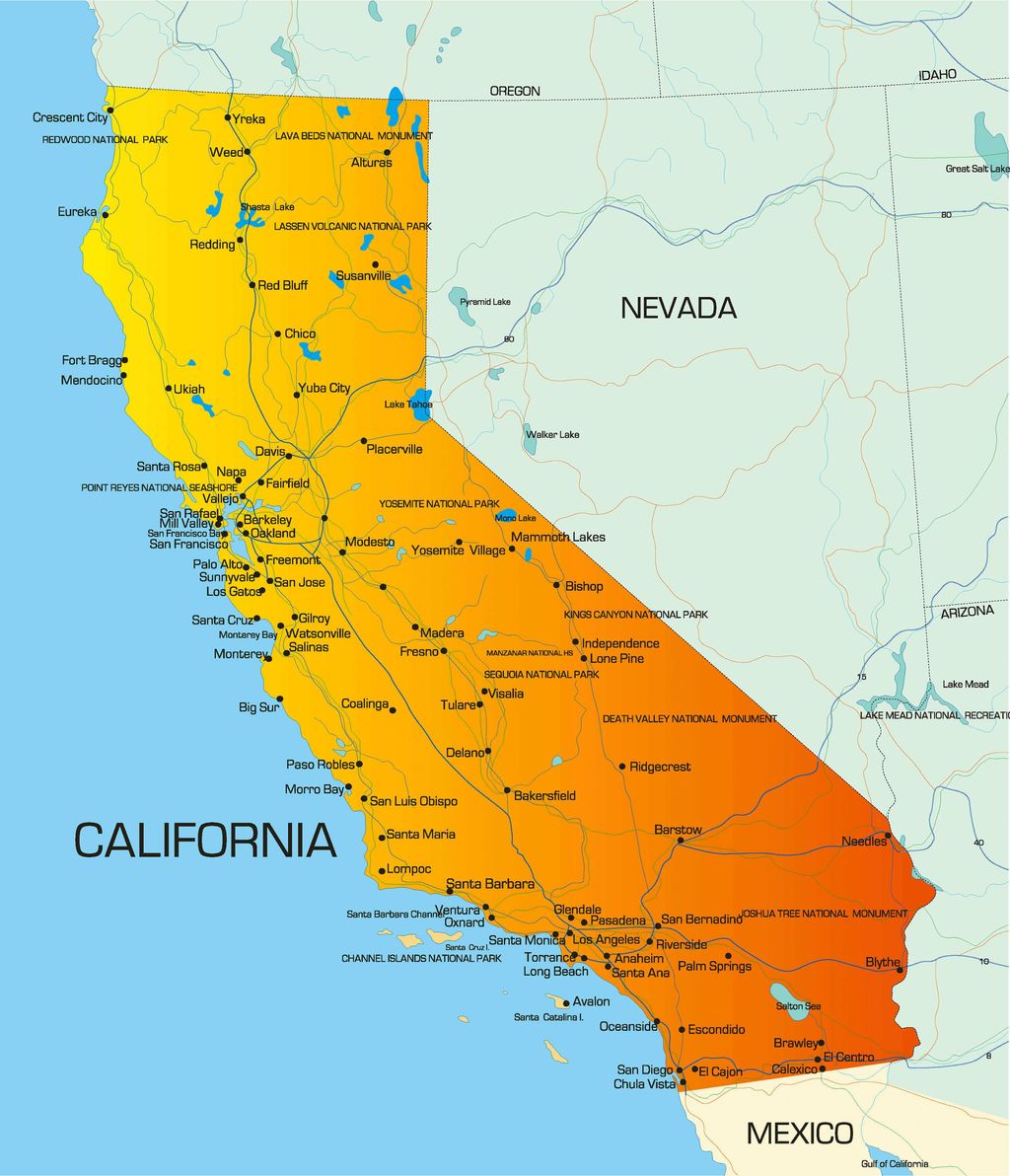
Furthermore, California state law mandates the utilization of an independent redistricting commission to draw maps. This commission is subject to a lengthy vetting process and is specifically designed to minimize political leverage, thereby complicating any partisan attempts at map manipulation. While Democrats might explore other states for potential map adjustments, many jurisdictions impose similar restrictions on mid-decade changes, potentially introducing unforeseen obstacles to their plans for altering electoral outcomes.
Attorney General Ken Paxton’s online posts asserted that the absent Democrats should be “found, arrested, and brought back to the Capitol immediately.” The Texas House Democratic Caucus also streamed a news conference in Illinois with Governor J.B. Pritzker on Sunday night to address their decision.
Texas House Democratic Caucus Chair Gene Wu explained, “We’re leaving Texas to fight for Texans.” He emphasized, “We will not allow disaster relief to be held hostage to a Trump gerrymander. We’re not walking out on our responsibilities; we’re walking out on a rigged system that refuses to listen to the people we represent. As of today, this corrupt special session is over.”
The proposed map is projected to fundamentally alter the state’s electoral landscape by creating five new Republican-favored seats, an outcome actively championed by President Trump as part of his strategy to maintain the U.S. House majority. These maps, first unveiled last week, are integral to a broader effort to establish new district lines in advance of the 2026 midterm elections.

Republicans aim to secure the passage of this legislation during a special 30-day session of the GOP-dominated Legislature, a session called by Governor Greg Abbott. On Saturday, the Texas State House Committee formally approved the proposed map, advancing it to the House floor. The vote, initially slated for Tuesday, was subsequently moved to Monday, intensifying the legislative timeline.
In a strategic move to disrupt this momentum, state leaders from the Democratic Party deliberately left Texas to break the legislative quorum. The Texas House Democrats issued a statement explaining their “extraordinary action,” noting it “comes after Abbott and Republican leaders in the Texas Legislature refused to prioritize disaster relief for the victims of Texas’ deadly floods, instead using the tragedy as political cover to push through a racially-gerrymandered congressional map.”
The statement concluded, “After two weeks of stonewalling and sham hearings, Democrats were left with no other option than to take this necessary step to protect Texas voters and all American.” Scott Braddock, editor at QuorumReport.com, offered his perspective: “This is the only option the Democrats have to either kill or delay this map that’s been proposed at behest of President Trump who wants to see five new Republican congressional seats drawn in this state. It would be my guess that they can’t kill the map, but they might be able to create some leverage to get it changed.”
Democratic statehouse legislators’ decision to leave Texas on Sunday aims to break the quorum of a special legislative session where Republican state legislators intend to pass a new congressional map that could result in up to five new GOP seats. This move follows a marathon public hearing on the plan at the state Capitol on Friday and less than a week after state Republican legislators initially proposed the new maps.
Read more about: Unraveling Presidential Impact: 10 Defining Moments in U.S. History Shaped by American Leadership

Republicans currently hold a clear majority in the Texas state legislature, which has limited the options available to Democrats for countering the legislative initiatives. State Representative Gene Wu, who chairs the House Democratic Caucus, reiterated in a statement, “We’re not walking out on our responsibilities; we’re walking out on a rigged system that refuses to listen to the people we represent. As of today, this corrupt special session is over.”
After news of the Democratic legislators breaking quorum circulated, Texas Attorney General Ken Paxton posted on X that those who left should be arrested and forcibly returned to the state capitol. U.S. Representative Jolanda Jones, a Texas Democrat, was observed reviewing maps during a Texas state House redistricting committee meeting on August 1, 2025, in Austin, highlighting the direct engagement with the proposed changes.
Attorney General Paxton further declared, “Democrats in the Texas House who try and run away like cowards should be found, arrested, and brought back to the Capitol immediately.” He added, “We should use every tool at our disposal to hunt down those who think they are above the law,” articulating the state’s aggressive stance.
Texas Governor Greg Abbott issued a blistering statement on Sunday evening, accusing the House Democrats who fled the state and prevented quorum of doing so for illegitimate reasons. He asserted that their premeditated decision could lead to the forfeiture of elected state office and demanded their return when the statehouse reconvenes for special session at 3:00 p.m. CT on Monday, August 4, 2025, or risk losing their positions.
Read more about: The United States: A Complex Legacy of Discord and Unity, Shaping a Nation’s Evolving Identity
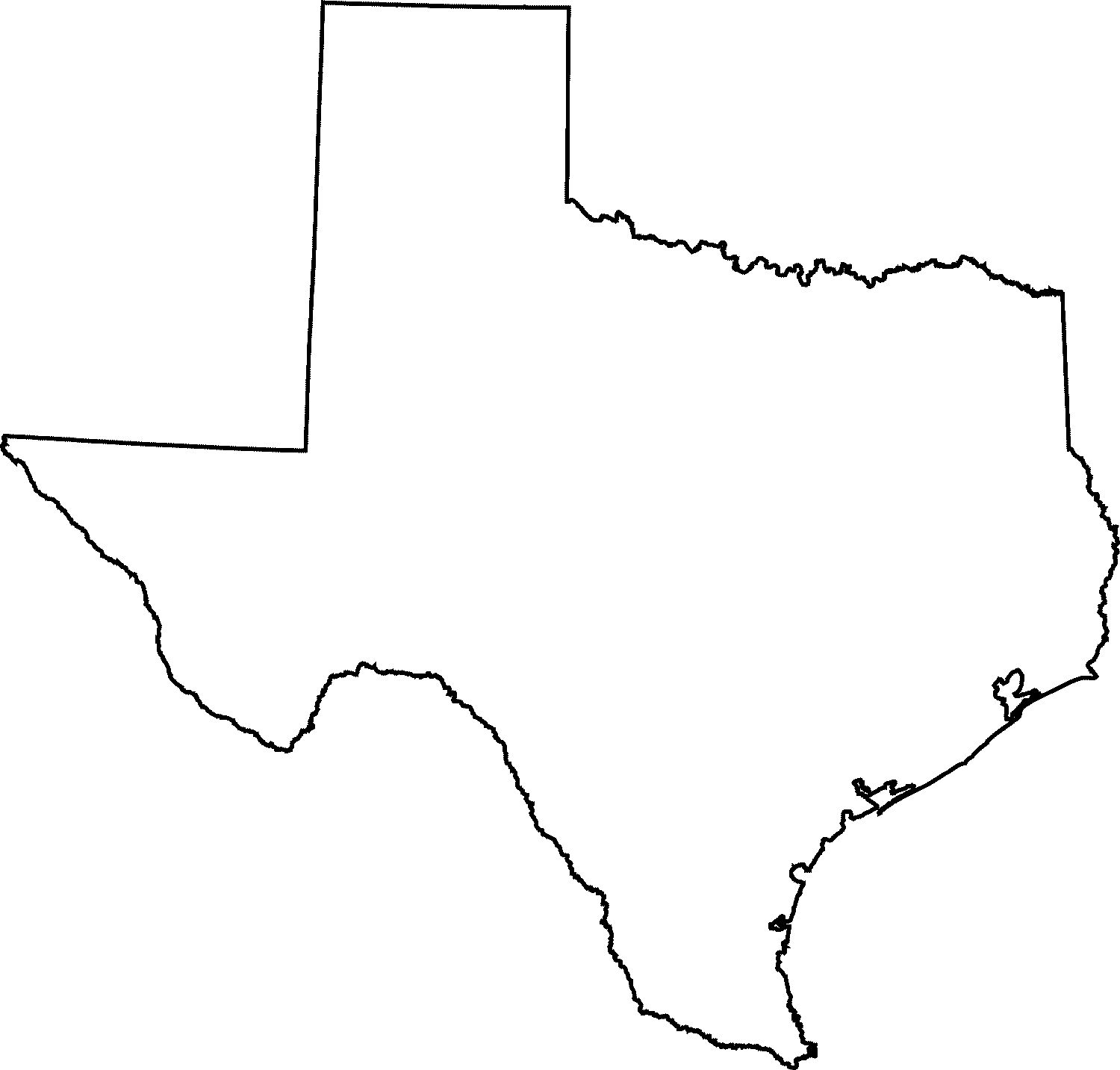
Governor Abbott’s statement read in part: “This truancy ends now. The derelict Democrat House members must return to Texas and be in attendance when the House reconvenes at 3:00 PM on Monday, August 4, 2025. For any member who fails to do so, I will invoke Texas Attorney General Opinion No. KP-0382 to remove the missing Democrats from membership in the Texas House.” The Texas House Democratic Caucus issued their four-word response: “Come and take it.”
The walkout itself does not possess the inherent power to unilaterally stop the passage of the bill. Instead, Democrats aim to exhaust the duration of the 30-day special legislative session, which, if successful, would necessitate Governor Abbott to call yet another session. Texas House Democrats have previously employed this tactic, breaking quorum in 2021 to attempt to halt an elections bill, and in 2003, against a similar Republican redistricting effort.
Despite these past efforts, Republicans ultimately succeeded in passing the bills on both previous occasions, underscoring the formidable challenge faced by the current Democratic walkout. President Donald Trump has previously stated his desire for Texas legislators to draw five new Republican districts, directly influencing the legislative agenda.

More than 51 legislators have left the state, effectively denying the state House the two-thirds majority, out of 150 legislators, required to establish a quorum. The exact number of how many of the 62 Democratic legislators from the state House participated in the walkout was not immediately available.
Democrats who break quorum face the possibility of accruing a $500-a-day fine, in accordance with the state House rules, and potential legal action. Texas Attorney General Ken Paxton, speaking with “War Room” host and former Trump adviser Steve Bannon on Thursday, discussed the legal implications.
Paxton stated, “The House rules and the Senate rules both allow for these people to be arrested if they leave… The challenge is, if they go out of state, we lose jurisdiction, and that — it’s been a challenge in the past, but in the end, as long as the governor is willing to keep calling sessions, ultimately they have to come home.”
Paxton expressed confidence in defending the new maps in court, asserting, “We’ve got, we’ve got good maps. And the legislature has the right to draw the maps they want. They’re politically based, not race-based. And if they’re politically based, then they’re defensible.” This highlights the legal framework Republicans believe supports their redistricting efforts.
Some of the Democratic legislators who fled the state appeared on Sunday evening with Illinois Governor J.B. Pritzker at a press conference. Governor Pritzker has been a staunch supporter of Texas Democrats and has even floated the possibility of having Illinois’ own congressional maps redrawn if Texas proceeds with its proposed changes. Illinois’ current maps have been criticized by outside observers as highly partisan in favor of Democrats.
Discussions regarding Texas Democrats traveling to Illinois have been ongoing since at least late June, when party officials in Texas initiated conversations with Governor Pritzker and his staff. A group of Texas Democrats flew to Chicago last month, where they met with Governor Pritzker and received assurances that he and his team would provide support should they choose Illinois as their refuge.

According to a source familiar with the discussions, Governor Pritzker’s staff has been providing logistical assistance, including helping to secure hotel accommodations in the area for the Democrats and offering office resources to facilitate their operation. While Illinois has extended a safe haven, some Texas Democratic members expressed concern that President Trump might attempt to deploy federal agents to apprehend the legislators and compel their return to Texas.
It remained unclear, however, whether there would be a legal basis for such federal intervention, as the lawmakers would be violating state legislative rules rather than federal law. The Texas lawmakers consciously decided against traveling to Washington D.C., a destination they utilized during a 2021 walkout, specifically due to concerns regarding federal jurisdiction in the nation’s capital, as confirmed by a person with direct knowledge of the effort.
Previous walkouts orchestrated by Texas Democrats against the solid Republican majority in the Texas Legislature have consistently been framed as a defense of voting rights. Many of the members who left the state on Sunday had participated in similar actions before, highlighting a pattern of resistance. Representative Trey Martinez Fischer, who played a leading role in the 2021 action, stated, “Our democracy is being stolen right in front of our faces.”

He continued, “If it takes Texas Democrats to walk out and wake up the nation, that’s what we’re going to do. Democrats need to start acting like Democrats and fight back.” In 2021, Texas Democrats undertook a walkout with the aim of blocking voting legislation they argued would diminish representation for Black and Hispanic voters across the state. In response, the Republican speaker of the Texas House issued civil arrest warrants for the absent members to force their return.
Despite the issuance of these warrants, none of the members were actually arrested in 2021. However, after an absence of nearly five weeks, three Democrats eventually broke ranks and returned to the State Capitol in Austin, thereby allowing the House to achieve a quorum and proceed with the passage of the contested legislation.
The current standoff in Texas represents a profound moment in the nation’s ongoing debate over electoral integrity and the balance of power. The Democratic walkout, a desperate gambit rooted in past strategies, signals an unwavering commitment to resist what they view as a fundamental undermining of democratic principles. As the days tick down on the special session, the eyes of the nation remain fixed on Austin and the actions of those who have departed it, anticipating whether this extraordinary response will forge a different path for the future of Texas’s political landscape and, by extension, the broader American political fabric. This is not merely a legislative dispute; it is a fight for the very essence of representative governance, played out with high stakes and profound conviction.




